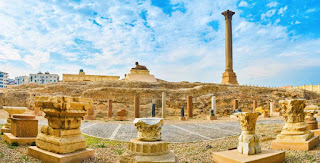For Bodel, the Matter of Rome was the collected literature of the Greeks as well as the Romans, and included historical figures such as Alexander the Great and Julius Caesar, and especially the Trojan War. The Iliad and the Odyssey were important inspirations for later works.
Another significant source from the Matter of Rome that informed medieval knowledge was Virgil's Aeneid. After leaving Troy, Aeneas travels the Mediterranean (not unlike Odysseus) and finally founds Rome. A grandson or great-grandson of Aeneas, Brutus/Brute/Brut, later founds Britain and becomes its first king. The story of Aeneas got retold as the Roman d'Enéas ("Romance of Aeneas"), c.1160 in a poem of a little over 10,000 lines.
Troy continued to captivate European audiences. Geoffrey Chaucer's Troilus and Criseyde is a love story that takes place in Troy during the war, introducing the medieval notion of courtly love to Ancient Greece. Anachronism did not bother medieval writers, however: even if they understood the possible cultural differences that would have existed, they would not let historical accuracy get in the way of telling the story they thought people wanted to hear.
Courtly love, for instance, was a popular central theme of much literature, and I find I've mentioned it briefly only once without going into detail. I'll rectify that oversight tomorrow.

No comments:
Post a Comment
Note: Only a member of this blog may post a comment.